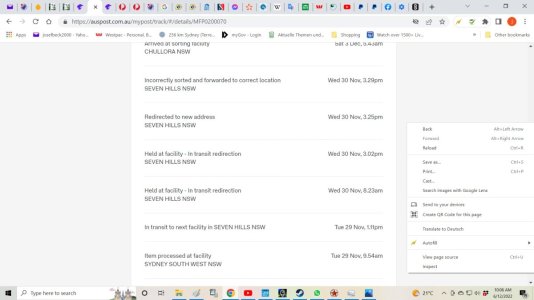SDC Rewards Member
Upgrade yours now
J
Protect yourself this holiday season! Learn to spot the warning signs of common Christmas scams
'Tis the season of giving... but it's also the season of scammers trying to take advantage of unsuspecting people!
In the lead-up to Christmas, Australians need to be more vigilant than ever before to protect themselves from holiday scams. Every year, cybercriminals ramp up their efforts to con people out of their hard-earned cash and generous nature.
But don't worry; the folks over at Westpac Bank have put together a list of common scams that pop up this time of year, as well as some tips on how you can avoid them.
Read on for more information!

Fraudsters prey on the holiday season's increase in online purchases and package delivery to trick people out of their money. Credit: Pexels/Karolina Grabowska.
Fake online store websites
One popular scam that occurs around Christmas time is fake websites offering competitive deals on presents and gifts. These scammers create look-alike websites for legitimate businesses in order to trick shoppers into buying from them. Once they have your money, you'll never see those items – or your money – again!
Fake parcel delivery
Another way scammers take advantage of Australians during the holidays is by impersonating reputable delivery services like Australia Post or FedEx and sending dodgy text messages telling consumers a parcel is on its way.
These texts always come with prompts to click a link in order to track delivery; however, clicking these links often downloads software onto your device that allows the scammer to steal money or personal information without you even knowing it happened!
The best way to avoid this scam is simply not to click any links sent via SMS or email related to package tracking; instead, visit the business website directly if you want updates about an order you've made.
Fake charity organisation websites
Cybercriminals also love taking advantage of our generosity during the holidays by setting up fake donation websites or posing as door-knocking appeals for charity donations.
So before giving any money away this holiday season (no matter how tempting), make sure you're donating only to legitimate organisations by checking if they are registered on the national charity register.
That way, you can be confident your donation will actually go towards helping those in need instead of being pocketed by a heartless fraudster!
Dodgy investment scams
Finally, one of the most common scams that occurs all year round, but is especially prevalent during the holidays, is the scam involving high-yield investment offers (‘get rich quick’).
These scams continue to dominate reported cases and trick Australians by offering quick, high cash for minimal effort. Scammers are even using photos and ‘dodgy’ quotes from well-known TV stars, such as David Kochie from Sunrise, to get unsuspecting people to invest their money.
The best way to avoid these kinds of scams is to always speak with a professional before investing and to be wary of any offers that seem a little too good to be true.
Tip
If you think you have been a victim of a scam, please click on this link to find out where to get the help you need.







